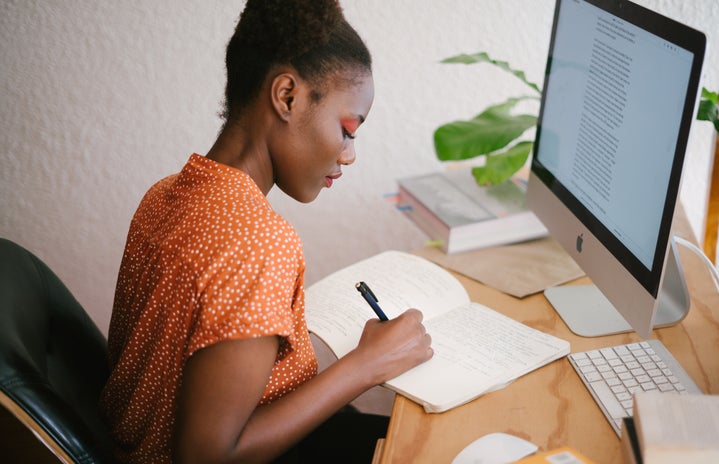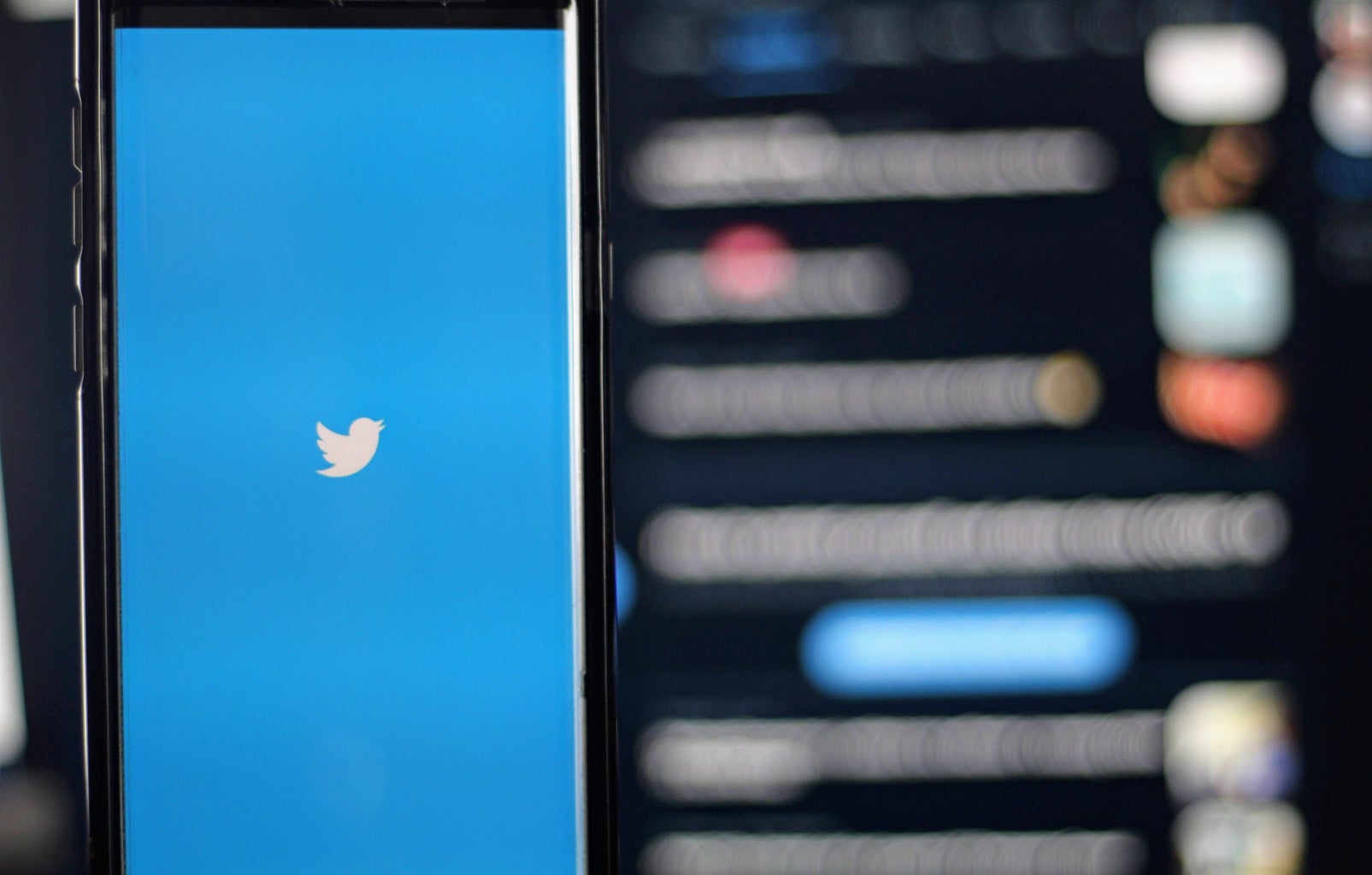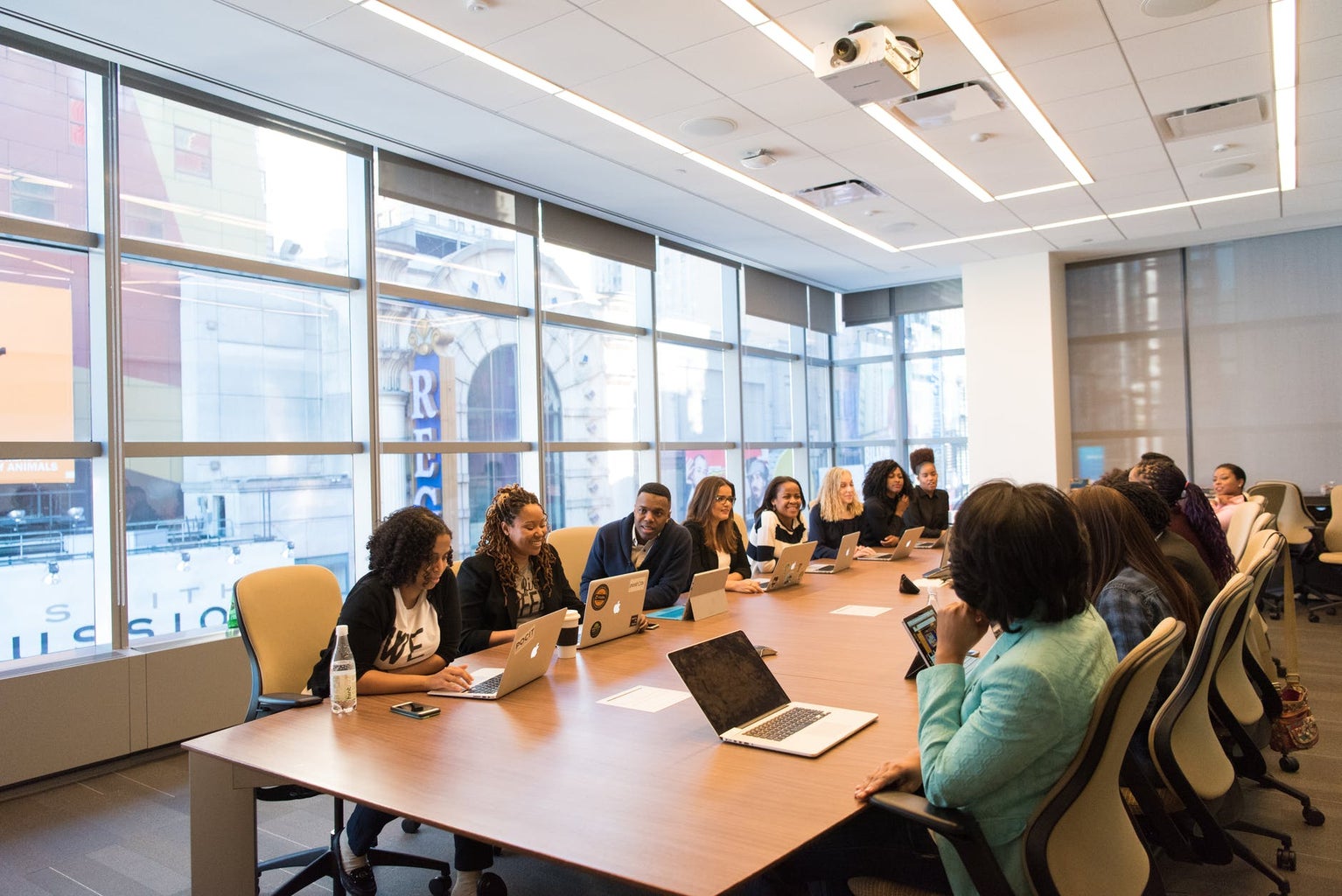On March 28, a panel of American University alums provided career advice to current undergraduates and celebrated the role of student media as a springboard for careers in communications.
The virtual event was hosted by the Blackprint, AU’s media organization of news and entertainment created by and for students of color. Ten Black women participated in the panel, including the co-founders and former editors-in-chief of the Blackprint, and former contributors for multiple student media outlets.
Taryn Daniels and Elisha Brown, who both graduated from AU in 2017, started the Blackprint to fill a void they saw on campus.
“We didn’t feel like there was a lot of coverage about students of color at AU,” said Brown, a current reporter at Facing South.
Now in 2022, the Blackprint is still thriving. Daniels, working as a Social Media Manager at the Social Chain, finds it humbling to see that AU students are improving the Blackprint every year and that the outlet she curated with friends was a space that others needed too.
Daniels and Brown, alongside eight of their peers and colleagues, cited work that they did for student media, including the Blackprint, as providing a significant boost to their portfolio.
“Companies care about the Blackprint and want to know about it,” said Zshekinah Collier, a content producer for Disrupted on Connecticut Public Radio. “A lot of people are doing campus publications like this now, but we’ve been doing it for years.”
Even with an impressive resume, breaking into the field of communications after graduating is not always an easy or linear process, according to the panelists. Collier equated the experience with that of artists. The path to success looks different for everyone.
A consistent piece of advice from the panelists was to explore, get experience in different positions and understand that trying things out temporarily is allowed.
“Just keep talking to people,” said Amanda Nyakela, who works in the Brand Partnerships department at Wasserman Music. “They can direct you to new places.”
Neah Gray, a Photo Coordinator at HBO/HBO Max, admitted that members of the AU community can become obsessive about internships, but having a resume of many positions and networking with people across organizations truly does help when looking for a more permanent job.
“Sometimes it feels like I’m walking in my mom’s high heels playing grown-up,” added Tori Powell on the transition from college into the workforce. Now a National Breaking News Reporter and Editor at CBS News, Powell said the key is to become comfortable with self-advocating.
“If you have an article you’re proud of, put it out there on a professional platform,” said Powell. She encouraged maintaining an updated LinkedIn profile and sharing published works “all over Twitter.” Showing up on an employer’s timeline is a great way to be recognized.
Jenna Caldwell, a Production Associate at TIME Magazine, advocated for an even more active approach, saying not to be afraid to “pitch yourself.” Even if an organization or newsroom is not promoting internship or job listings, it is never a bad idea to “cold email” them and ask for opportunities, she said.
In a field still dominated by white men, the panelists stressed the importance of creating space for people of color.
As the only Black woman on her current team, Tainaya Nash, an Internal Communications Associate at Fitch Group, hopes that white people will make the effort to be cognizant of their biases and listen to the perspectives of people of color.
Having diverse opinions when making decisions ensures that ideas are coming across the way they are intended, added Carol Wright, a Strategic Communications Assistant at the Lede Company.
“If you want to be part of the conversation,” said Daniels, “everything you do should be done with thought and to push the conversation forward.” Otherwise, she said, know when to step out of the spotlight and let a community heal or celebrate.
Throughout the discussion, a sense of community and support for one another emanated among the panelists.
“Horizontal networking is maybe even more important than reaching out to those folks whose positions you want to be in,” Brown said.
Powell and Brown encouraged participants in the discussion to see their peers as those whom they will one day be working alongside, rather than as direct competition.
As the discussion came to a close, Alexis Arnold, News Designer at the Washington Post, reminded student journalists to take pride in their efforts.
“Your work is real work,” she said. “People want to know, ‘Are there more of you?’”




